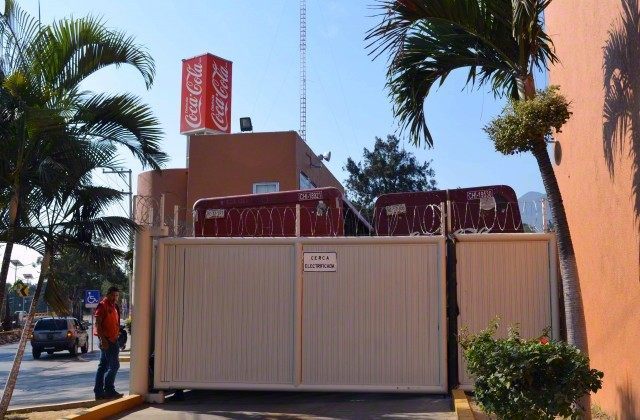There aren’t many smiles to go with a Coke in the state of Guerrero, Mexico, these days. FEMSA, the largest franchise Coca-Cola bottling company the world, shut down its distribution centers in Iguala—site of the kidnapping and likely massacre of 43 students nine months ago—and Arcelia while maintaining facilities in other parts of the state.
According to the PanAm Post, FEMSA has not publicly commented on the reasons for its decision to move from Iguala. But its 2014 annual report warned that rising drug-cartel violence could harm their business. Specifically, the report said, “Insecurity in Mexico could increase, and this could negatively impact our earnings. The violence between drug cartels, and between them and the armed forces that seek to enforce the law, could represent a risk to our business.”
Volkswagen, Spanish automaker Seat, and Mexican cement manufacturer Canteras de México have also moved their operations elsewhere.
Guerrero has been an epicenter of drug-war violence for years, formerly centered around conflicts between the Knights Templar and La Familia Michoacana cartels, but now increasingly dealing with the presence of the Cartel de Jalisco Nueva Generación (CJNG). Guerrero state has also experienced a surge of controversial vigilante activity in the last two years. Initially, these militias collaborated with the Mexican government to oust cartel thugs from Guerrero towns. They soon became infiltrated by the very cartel members they were trying to eliminate.
Adding to FEMSA’s concerns is a February 2015 incident in which two FEMSA employees were kidnapped by a member of a local teachers union. Local police had arrested three union members for looting a Coca-Cola truck, and the kidnapper had demanded their release. Union members–protesting the disappearance of the 43 students in Iguala the previous September–also firebombed the distributor’s offices. As a result of the incident, FEMSA closed its distribution center in Chilpancingo, and fired 600 employees.
Mexico currently has the 13th-largest economy in the world and is home to hundreds of multinational corporations, technology parks, and manufacturing centers that distribute products internationally. Historically, drug-war violence not directly affected major manufacturing or corporate activities. But as the nature and location of drug war violence evolves, so may the impact on U.S. companies doing business south of the border.
Sylvia Longmire is a border security expert and contributing editor for Breitbart Texas. You can read more about cross-border issues in her latest book, Border Insecurity: Why Big Money, Fences, and Drones Aren’t Making Us Safer.

COMMENTS
Please let us know if you're having issues with commenting.